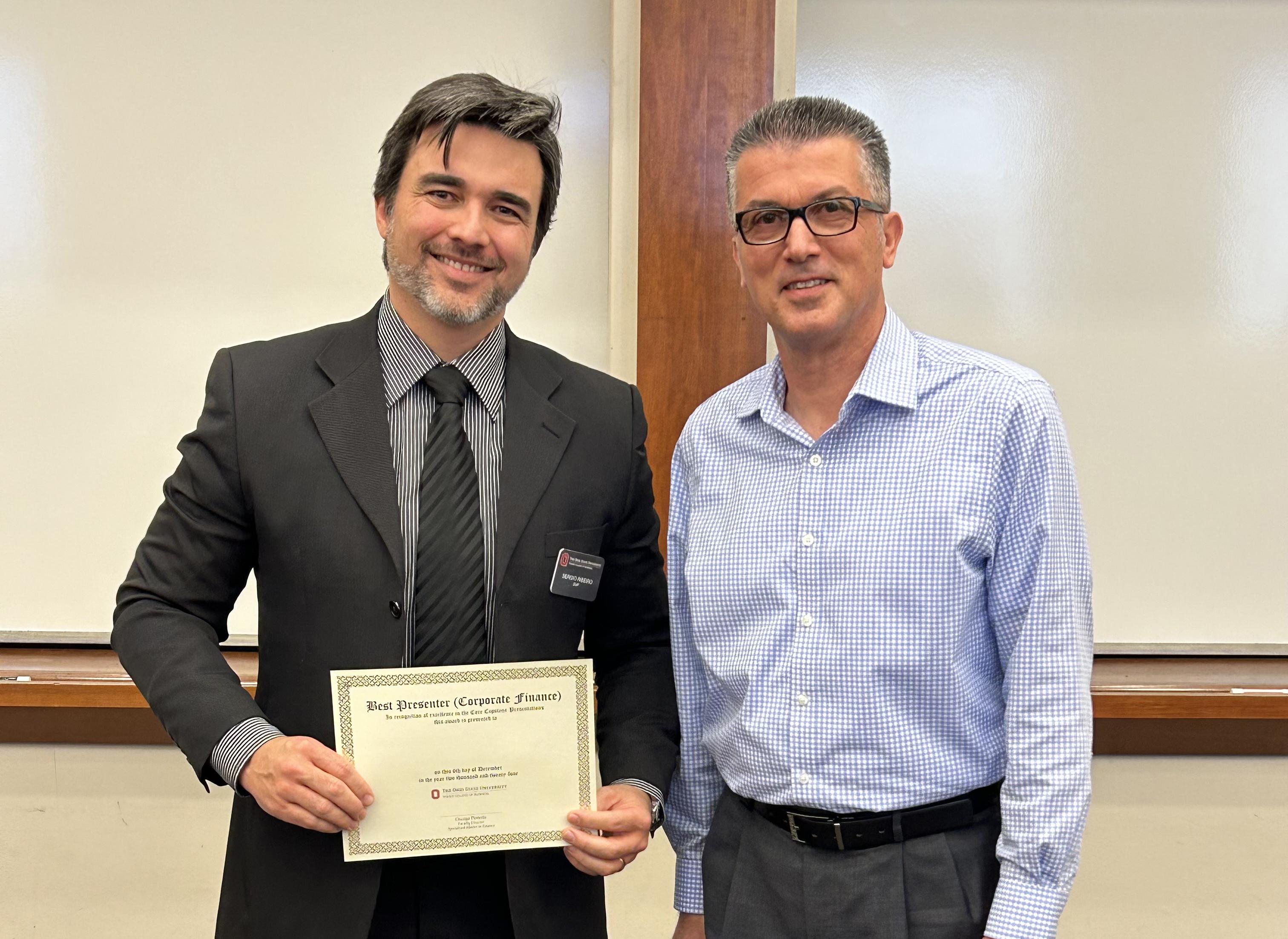
Quantitative or Qualitative Skills: What to Expect in the SMF Program
I’m frequently asked (or come across someone who has been asked the same), whether Fisher’s Specialized Master in Finance program is a quantitative or qualitative skill-based program. Well… it’s certainly a fair question, but to be honest, I think it should follow a more essential one: In today's rapidly evolving business and financial landscape, should you focus on developing your quantitative skills, or should you prioritize honing your qualitative abilities?
Let me answer both questions as I share my perspective, which is based on over 20 years of experience, most of them in management positions. And please keep in mind that everything you will read has influenced my recent personal choices and brought me to The Ohio State University.
The Power of Quantitative Skills
Quantitative skills are often seen as the backbone of industries like finance, economics, and data analysis. These skills involve working with numbers, data, and statistical methods to make informed decisions. In finance, for example, being able to analyze financial models, forecast market trends, and evaluate risk is key to providing actionable insights that drive business strategy.
The demand for strong quantitative abilities has never been higher, especially as businesses increasingly rely on data-driven decisions. From algorithmic trading to financial engineering, having a solid grasp of mathematical tools, programming languages, and data analytics is indispensable in today’s competitive job market. Professionals with strong quantitative skills are often tasked with making sense of complex financial instruments, optimizing portfolios, or managing large datasets to extract meaningful trends.
This is the toolset we focus on in our early professional development, hoping that it will be enough to get us where we dream.
The Importance of Qualitative Skills
The problem is that everyone is executing the same plan. If you want to be differentiated, you should not only look at what you want next but also at what successful professionals 1, 2, or 3 steps ahead of you have. I can guarantee you that if you seek a leading position, you will need a to combine your technical knowledge with a set of both quantitative and holistic skills. Leadership, after all, goes far beyond just assuming a managerial position.
While numbers and data are crucial, they are only part of the equation. Qualitative skills—such as communication, critical thinking, and emotional intelligence—are equally important in the world of finance. These skills allow professionals to interpret data in context, understand the nuances of human behavior, and present their findings in a way that is clear and persuasive to stakeholders. That’s is true either if are trying to improve the results within a company or seeking to anticipate market movements.
Finance isn’t just about the numbers; it’s about how those numbers translate into real-world decisions. For example, qualitative analysis can help assess the cultural fit of potential investments or gauge how market sentiment might impact stock prices. Professionals who possess strong qualitative skills are adept at navigating the often complex, unpredictable aspects of financial markets and can communicate their insights to both technical and non-technical audiences.
Moreover, qualitative skills play a key role in leadership, collaboration, and negotiations—areas that are critical for advancing in any career. Whether it’s building relationships with clients, managing a team, or making strategic decisions, emotional intelligence and the ability to engage in meaningful dialogue are assets that can set professionals apart.

The Right Balance
So, you might be thinking “Okay, that’s great, but what’s your suggestion then?” Well, let’s get the obvious part out of the way: if you want to be a complete and differentiated professional, you will need both sets of skills. That is totally true, but not the main point I’m trying to make here. What will really “bake your noodle” later is how to get there. My answer to you is "choice."
Let’s cut to the chase. If you are a technically driven person, you might instinctively seek ways to develop technical knowledge and leave the other side of the coin for some time in the future. The only way to avoid falling into the trap of being bound by the obviousness of our natural trends is consciously choosing to go one step further and directing your actions accordingly. Inertia will only take you to the common place—being more means not only doing more but doing it differently.
Most young students and professionals focus on specific technical skills they believe will take them one step forward. Companies are looking for professionals who can see beyond that and act accordingly.
On the other hand, if you are the opposite and don’t seek technical and/or quantitative knowledge, finance may not be for you.
The SMF Program
The bottom line is that both sets of skills play a vital role in shaping a successful career, particularly in fields like finance, where the intersection of numbers and human behavior is central to decision-making. Understanding how these skills complement each other can give you a clearer idea of what to expect in your career and how to strike the right balance.
A well-rounded master’s in finance program should not just focus on number crunching. It must combine rigorous quantitative training—covering everything from financial modeling to econometrics—with opportunities to develop leadership, communication, and decision-making abilities. Programs that emphasize both aspects help students gain a comprehensive understanding of the financial world, equipping them with the tools they need to excel in any role, from investment banking to corporate finance or financial consulting.
Moreover, a good finance program also places a strong emphasis on real-world application. Case studies, group projects, and internships allow students to apply both their quantitative and qualitative skills in practical settings, helping them navigate the complexities of modern finance. As industries become more interconnected and data-driven, the ability to interpret and act on both numbers and human dynamics will give graduates a distinct advantage in the job market.
I’ll leave you with my straight answers. The SMF Program is a well-balanced program, focused on developing both sets of skills. What’s even more interesting is that you can customize it by choosing from one of four tracks and a pool of valuable elective classes. As for the need for either set of skills, it should be clear that you will need both at some point. Finally, regarding the right balance between them, that’s something only you can determine and adjust as you evolve in your career and self-knowledge.







